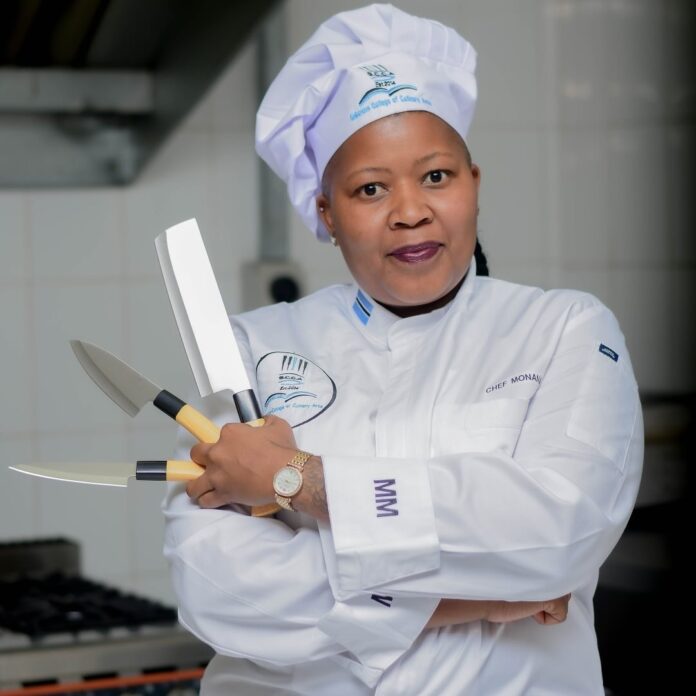Kutlo Motseta
21st October 2024
Every meal that is cooked in a restaurant, especially high-end business entities, comes at a heavy cost not just to the consumer but chefs who prepare the meal. They sacrifice a lot especially their mental health.
On Friday 18th October, the Gaborone College of Culinary Arts held a campaign at Avani Hotel to raise awareness about mental health challenges faced by Chefs and invited students from Maoka and Motswedi Junor Secondary Schools to learn about the more about the culinary industry.
The event was held to coincide with mental health month (October).
Chefs prepare many meals which have to passed by the Executive Chef, who has to make sure that they meet the standards of the business so it does not raise the ire of clients, because, as the saying goes ‘the customer is always right.’
“Most chefs are not okay mentally, every year we celebrate world chef day on 20th October because of mental health day … our theme this year is ‘picnic of beginning’, [we want chefs to be] mentally prepared and know how to take care”, said Monana Motswaledi, who is the head of Gaborone College of Culinary Arts and Vice President of Botswana Chefs Association.
“[Chefs] work long hours and resort to addiction like caffeine, work in hot and cold [temperatures] … Lots of cases of suicide, in the last three months we lost two chefs to depression and another to a long illness. It’s a global problem [suicide … some chefs] become dependent on drugs”.
She further explained that she has worked “52 hours without sleep. This holiday, I did Saturday to Monday night and slept six hours.”
“Most of time [Chefs suffer] from depression cause they are there for and are supposed to serve people with a smile … most of the time they cannot attend family events so family is not there not for them …. causes anxiety, depression and addiction.”
In comparison to international chefs who command good salaries, Motswaledi opines that more can be done to pay local chefs better. She said some local executive chefs only get paid P30 000, but deserve more than what they are paid.
“Over the 10 years chefs is now being seen as a profession … [there] was a lot of on-the-job training … lots of chefs being taken from outside … [chefs] are underpaid in Botswana,” said the head of the school.
According to Motswaledi there are six institutions which offer the culinary education locally. Three in private sector and three in the public sector. Namely BOSWA, Career Dreams and Gaborone College of Culinary Arts in the private and Gaborone Technical College and Francistown Vocational College (FCTB) in the public sector.
Gaborone College of Culinary Arts, which has been operational for 10 years, takes students from the age of 16 years.
Regarding her experiences working with Chefs, Paula Muturi, who is an administration manager at Gaborone College of Culinary Arts said, “working with chefs is fun but hectic, chefs need specific ingredients that are hard to find.” She added that “Chef’s go through so much, they are under pressure, [they work] long hours, they have lots of passion and drive … They are shouted at by executive chef and still have to make their clients smile.”
The profession can be rewarding, “after they graduate they are able to become private commercial chefs … what we do they have international chef placements we have a few that are in the USA”, she said.
Gaborone College of Culinary Arts takes level 1 Diploma students from form 3 and form 5 students with 36 points for the Diploma in Culinary Arts.
Monana Motsweledi, Head of Gaborone College of Culinary Arts is picture above.







